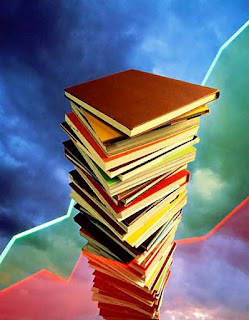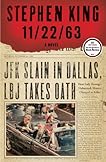 Book reviews
Book reviewsRoad Rage by Richard Matheson, Stephen King, and Joe Hill (3/5 stars, read on audio) — thriller/horror; two novellas about terror on the highway
The Stepsister Scheme by Jim Hines (4/5 stars) — fantasy; another take on fairy tales that has the heroines heading out to rescue the prince
Discord's Apple by Carrie Vaughn (4/5 stars, read on audio) — urban fantasy; a young woman inherits a legacy of protecting objects of lore
Fluke: Or, I Know Why the Winged Whale Sings by Christopher Moore (4/5 stars, read on audio) — humor/urban fantasy/weird; a whale researcher gets in way over his head, but gets his answer
Grave Surprise by Charlaine Harris (Harper Connelly #2)(3/5 stars, read on audio) — horror/mystery; a woman with the ability to locate the dead finds a grave with two bodies buried in it
11/22/63 by Stephen King (5/5 stars, read as part of a readalong) — time travel thriller; a man finds a portal to 1958, and goes through to prevent the assassination of JFK
Sunglasses After Dark by Nancy A. Collins (4/5 stars) — horror/urban fantasy; invokes the root of vampires-as-monster, while establishing the whole vampire hunter genre so prevalent today
Dexter by Design by Jeff Lindsay (Dexter #4)(4/5 stars, read on audio) — horror/mystery/thriller; serial killer killer Dexter is nearly unmasked
Plum Lovin' by Janet Evanovich (3/5 stars, read on audio) — humor/mystery; Stephanie Plum plays matchmaker
Also, because people keep reading these reviews:
Life Before Man by Margaret Atwood (3/5 stars, read on audio) — literary fiction; two women and a husband deal with the aftermath of the wife's lover's suicide
Alcatraz Versus the Scrivener's Bones by Brandon Sanderson (Alcatraz #2)(4/5 stars) — YA/urban fantasy/humor/weird; Alcatraz goes to the Library of Alexandria hunting a clue about his father
Most popular posts in January
Readalong post #1, covering parts 1 - 3 of 11/22/63 by Stephen King
Antici-, where I build suspense for my stories about taking authors to dinner by talking about building suspense. Raise your hand if you figured that out before I told you.
Libraries, about the closest I can get to Heaven without dying
Responding to reviews, about the Writer's Big Mistake and the steps I vow to take if and when it becomes relevant to me
Rules to review by, about the standards I hold my book reviews to
Dinner with a fantasy writing icon, about the time I nearly giggle-shrieked aloud in a very crowded place
Writing by the seat of your pants, being one of my oldest posts, still gets a decent rate of hits. Apparently people still want to know what the heck a pantster is.
Bad grammar makes me [sic], about how one grows up to be a member of the grammar police
Coming next month: a readalong of Feed by Mira Grant (I've already read it, and will be sharing my second-time-around observations), SWANoWriMo, more book reviews, and a post about repetition, foreshadowing, or repetition.










